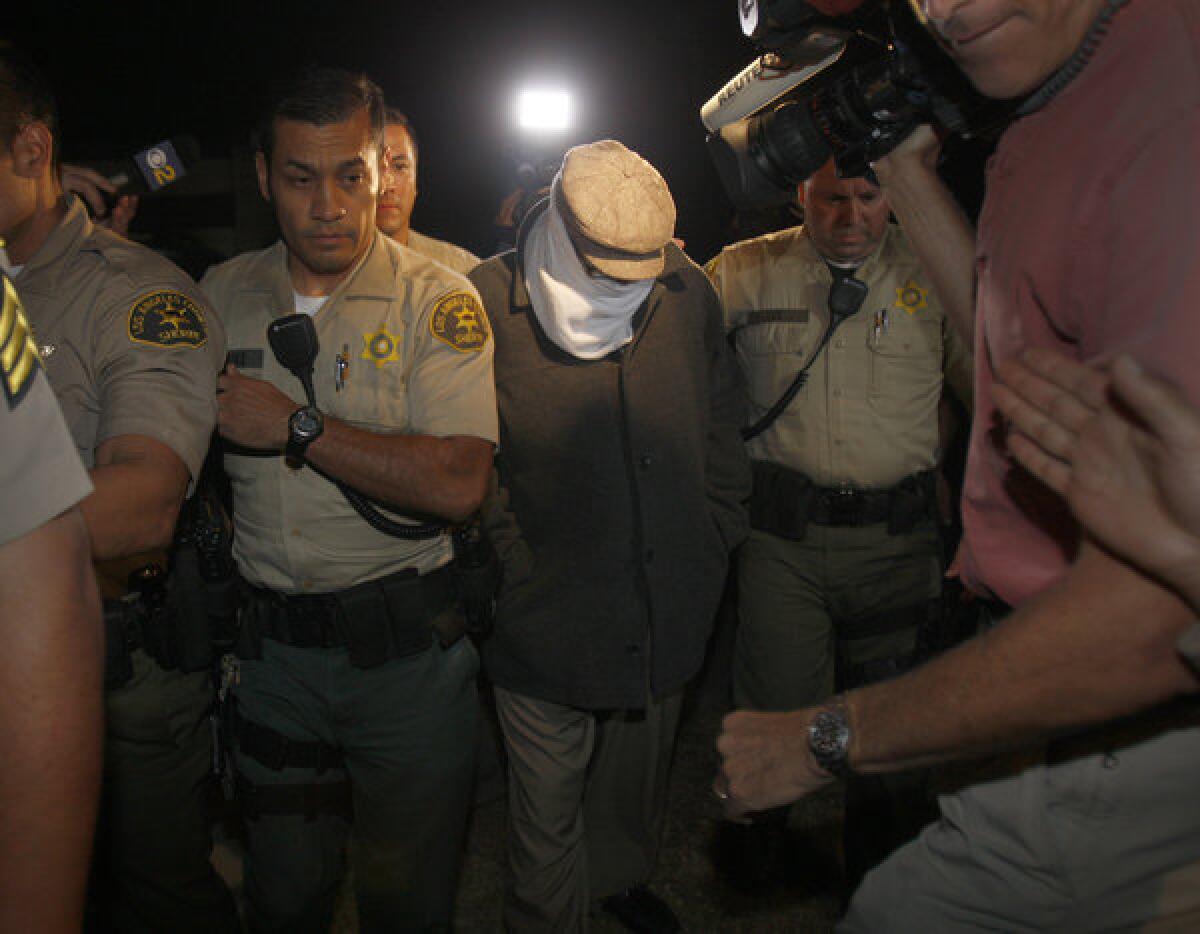Court orders Google to take down ‘Innocence of Muslims’ film

- Share via
SAN FRANCISCO -- A federal appeals court Wednesday ordered Google to remove from the Internet all copies of an anti-Muslim film that forced an actress from her home because of threats on her life.
In a 2-1 decision, the U.S. 9th Circuit Court of Appeals said a trial judge erred when he refused to grant an injunction ordering the removal of the film, “Innnocence of Muslims,” from YouTube, which is owned by Google. The film sparked worldwide violent protests.
“While answering a casting call for a low-budget amateur film doesn’t often lead to stardom, it also rarely turns an aspiring actress into the subject of a fatwa,” 9th Circuit Chief Judge Alex Kozinski wrote.
But that’s exactly what happened to Cindy Lee Garcia when she agreed to act in a film with the working title “Desert Warrior.”
“Desert Warrior” never materialized, but the performance Garcia gave was included in “Innocence of Muslims.” Garcia said her voice was dubbed over to make an anti-Muslim remark and threats on her life forced her from her home and place of business.
GALLERY: 10 controversial films based on religion
The 9th Circuit, which called the case difficult, said the filmmaker’s implied license to use Garcia’s performance “wasn’t so broad as to cover the use of her performance in any film.”
“Here, the problem isn’t that ‘Innocence of Muslims’ is not an Arabian adventure movie: It’s that the film isn’t intended to entertain at all,” Kozinski wrote. “The film differs so radically from anything Garcia could have imagined when she was cast that it can’t possibly be authorized by any implied license she granted.”
The court said that Mark Basseley, who also uses the names Nakoula Basseley Nakoula and Sam Bacile, wrote and produced the film and paid Garcia $500 for 3½ days of work.
“A clear sign that Youssef exceeded the bounds of any license is that he lied to Garcia in order to secure her participation, and she agreed to perform in reliance on that lie,” Kozinski wrote. “Youssef’s fraud alone is likely enough to void any agreement he had with Garcia.”
Google, in opposing an injunction, argued that it would be a prior restraint in violation of the 1st Amendment. But the court said the 1st Amendment does not protect against copyright infringement.
“The situation in which a filmmaker uses a performance in a way that exceeds the bounds of the broad implied license granted by an actor will be extraordinarily rare,” Kozinski wrote. “But this is such a case.”
[Updated at 7 p.m. PST Wednesday, Feb. 26: A spokesperson for Google said in a statement later Wednesday: “Today the Ninth Circuit Court of Appeals ruled that an actress in the Innocence of Muslims trailer may have a copyright claim over her five-second appearance in the video. As a result the court ordered Google to remove the video from our services. We strongly disagree with this ruling and will fight it.”]
Kozinski was joined by Judge Ronald M. Gould. Judge N. Randy Smith dissented.
Twitter:@mauradolan
More to Read
Sign up for Essential California
The most important California stories and recommendations in your inbox every morning.
You may occasionally receive promotional content from the Los Angeles Times.











